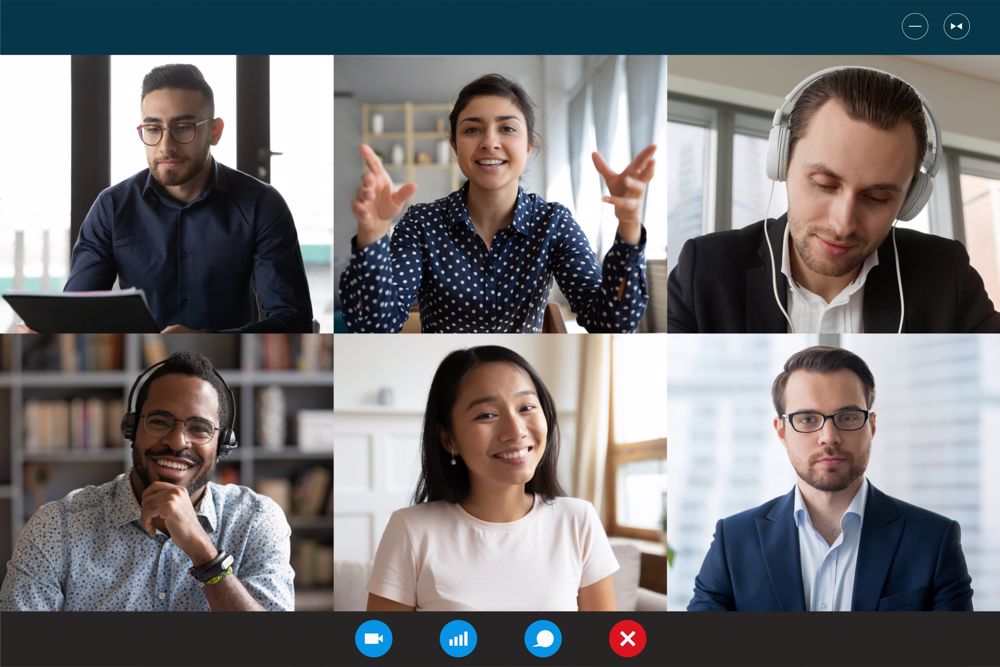Zoom Fatigue – Conquering Zoom Fatigue Once and For All

So, you’re sick of videoconferences. You’re not alone. Healthy percentages of us – between 25% – 35%, depending on which survey you read – are zoning out on calls, or doing other things, or simply staring at the wall and waiting to hear our names so that we can say, “Uh-huh” or “I agree” and then hope that what we agreed to is actually something we agree with. It’s also physically exhausting to stare at a screen, looking at people’s noses or cheeks and wondering why nobody ever looks you in the eyes, which is when you remember that you need to look at your camera and not at the giant heads on your screen. That tends to work for about 15 seconds, and then you’re right back at the screen where nobody is quite looking at anyone. Then there’s the people who forget to mute their microphones, the camera switching every time someone coughs, the….

I’m done now. I’m getting irritated just thinking about it.
Video calls have been around for a surprisingly long time. The first video call took place in 1956 with AT&T’s Picture-Phone, which sent still images every two seconds through standard phone lines. In 1964 the company opened Picturephone booths in Chicago, New York, and Washington D.C. Three years later, all three locations were shuttered from an almost complete lack of use – only 71 calls were made in the first six months, and exactly zero were made in the last year they were open.
Since then, videoconferencing technology has only gotten better, but that hasn’t necessarily translated into widespread adoption. It was certainly more common in 2019 than in 1956, but videoconferences didn’t become ubiquitous until we found ourselves with no other alternative. The technology has arrived, but our collective desire to use it hasn’t.
Why? Because videoconferencing requires things of us that we aren’t used to and aren’t well-adapted for. Specifically, it demands that we show our attentiveness to others in a completely new way – by sitting motionless and staring intently into a screen. That is not behavior any of us regularly engage in anywhere else in life; people who sit motionless and stare intently at us in public are weird and creepy. And for normal people, sitting still and staring intently is not only awkward but also physically draining.
So with this in mind, here are a few strategies to help avoid “zoom fatigue.”
Keep Calls Short
Because the way we are being asked to pay attention is more mentally and physically taxing than normal, it makes sense that our attention span is shorter on a videocall than in other settings. A study, for example, found that the best participants were only able to stay focused during a videoconference for 30-37 minutes, compared to 52 minutes in a live setting. So if you’re accustomed to scheduling hourlong meetings with your in-office team, you might want to do multiple 15- or 30-minute meetings with your remote workforce.
Have More Phone Calls
The phone has been with us for well over a century, and people have never gotten tired of using it. We like the phone; it lets us walk around and lounge lazily on the couch and anything else that isn’t sitting rigidly still and staring intently at a screen. Unless you absolutely MUST see people, a good old-fashioned conference call can be plenty effective (and frequently better) than a video call.
Aggressively Limit Attendance
There is no reason to do a video call to share information with your entire team if an email can accomplish the same thing. And there’s no reason for people to sit in on a video call listening to other people make decisions unless their input is essential and expected. The fewer people on your next videoconference, the more likely they’ll participate and stay engaged.
As you have probably intuited, the central thread here is to use videoconferences sparingly and intentionally, not as your default option every time you need to talk with anyone. Thank you for reading this many words without clicking over to something else, and good luck!
This post was originally shared by The Jeff Havens Company at jeffhavens.com here.
MasteryTCN has published a number of titles originally produced by the Jeff Havens Company! You can learn more about them here.